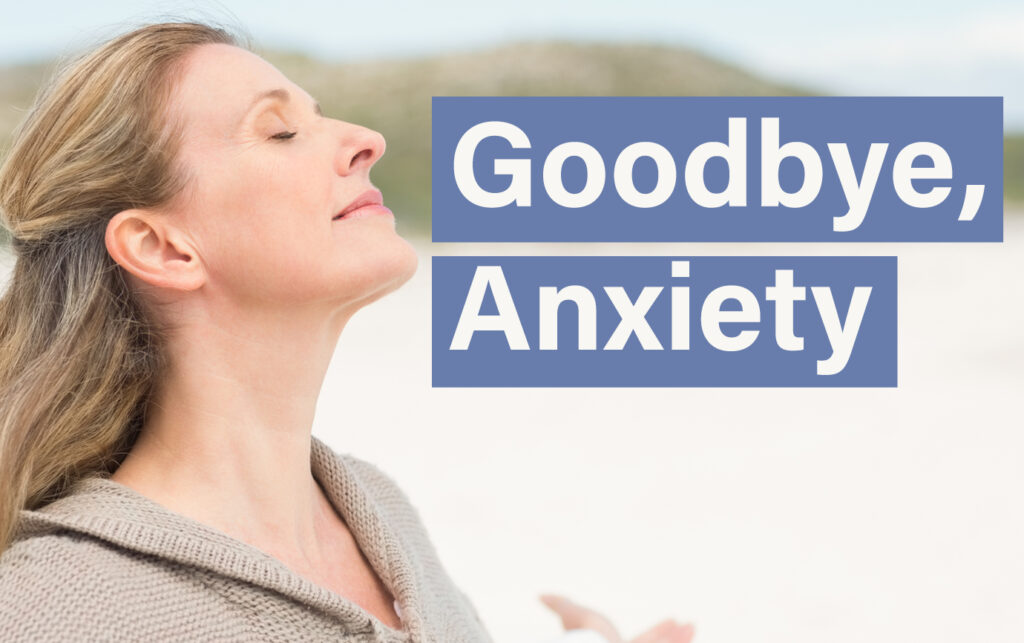Chances are you or someone close to you has experienced an anxiety attack.
Let me reassure you that it’s okay to feel scared and overwhelmed – anxiety attacks can be incredibly frightening. However, it’s important to remember that they are a common experience for many people and there are things you can do to manage them.
As a mental health therapist, I have seen firsthand the impact that anxiety attacks can have on people’s lives. They can make it difficult to carry out everyday tasks, affect relationships, and even cause physical symptoms like chest pain or shortness of breath.
No worries – in this article, you will learn some practical strategies for managing anxiety attacks so you can feel more in control and less overwhelmed when they strike. So take a deep breath, grab a cup of tea, and let’s explore what to do if you have an anxiety attack.
Defining Anxiety Attacks
Anxiety attacks can be overwhelming and frightening experiences. They often come on suddenly and without warning, leaving people feeling like they are losing control or even going crazy.
Anxiety is a normal human emotion. Everyone experiences it from time to time, yet an anxiety attack is different. It is an intense burst of fear or panic that can last anywhere from a few minutes to several hours.
Some common anxiety attack symptoms include rapid heartbeat, sweating, trembling or shaking, shortness of breath, dizziness, and feelings of impending doom or danger. Understanding the physical symptoms of an anxiety attack is important because it can help you recognize when one is coming on and take steps to manage it effectively.
In the next section, we will dive deeper into the causes of anxiety attacks so that you can gain a better understanding of what triggers them and how to prevent them from happening in the future.
Understanding the Causes of Anxiety Attacks
Understanding the causes of anxiety attacks is an essential step towards managing and overcoming them. Anxiety attacks can be caused by various factors, such as genetics, brain chemistry, life experiences, and environmental stressors.
Some people may have a predisposition to anxiety disorders due to their family history or past traumatic events. Others may experience anxiety attacks due to imbalances in neurotransmitters responsible for regulating mood and emotions. Moreover, high levels of stress at work or home can also trigger anxiety symptoms.
Understanding the root cause of your anxiety attack symptom is crucial in developing an effective anxiety treatment plan. In the next section, we will delve deeper into recognizing the symptoms of anxiety attacks and how to manage them effectively.
Recognizing the Symptoms of Anxiety Attacks
Understanding the causes of anxiety attacks is an essential step in managing them. However, recognizing the symptoms of anxiety attacks is equally crucial.
Anxiety attack symptoms can vary from person to person and can be physical or emotional. Physical symptoms may include rapid heartbeat, sweating, shaking, shortness of breath, and chest pain, whereas emotional symptoms may include excessive worry, fear, or panic.
To cope with anxiety attacks effectively, it’s essential to develop anxiety coping skills that suit your needs. These coping skills may include breathing techniques, relaxation exercises, meditation practices, or seeking professional help.
By understanding these anxiety symptoms and developing effective coping skills, you can learn to manage your anxiety attacks better. In the subsequent section about breathing techniques to calm your body, we will explore how simple breathing exercises can help you reduce stress and promote relaxation.
Breathing Techniques to Calm Your Body
When experiencing an anxiety attack, it’s essential to remember that you have the power to calm your body down. One of the most effective ways to do this is through breathing techniques. Focusing on your breath can help slow down your heart rate and reduce other physical anxiety attack symptoms.
Try taking deep breaths in through your nose and out through your mouth. You can also try counting as you inhale and exhale, or visualizing a peaceful scene as you breathe. It’s important to practice these anxiety breathing techniques regularly, so they become automatic when you feel anxious.
In addition to breathing techniques, there are many other anxiety coping skills you can use during an anxiety attack. These include grounding exercises like focusing on your senses or repeating a calming phrase to yourself. It can also be helpful to identify your triggers and work on managing them proactively.
Remember that everyone’s experience with anxiety is unique, so it may take some trial and error to find what works best for you.
Next up: progressive muscle relaxation is another powerful tool in managing anxiety attacks. By tightening and relaxing different muscle groups, you can release tension and calm both your mind and body.
Progressive Muscle Relaxation
It’s understandable to feel overwhelmed when experiencing an anxiety or panic attack. However, it’s important to remember that you have the power to take control of your body and mind during these moments.
One technique that can be helpful is progressive muscle relaxation. This involves tensing and then relaxing different muscle groups in your body, starting from your toes and working your way up to your head. Not only does this help release physical tension, but it also allows you to focus on the present moment and distract yourself from anxious thoughts.
Here are three tips for practicing progressive muscle relaxation:
- Find a quiet and comfortable space where you won’t be interrupted.
- Practice regularly, even when you’re not experiencing an anxiety attack, so that you become more familiar with the technique and can easily implement it when needed.
- Don’t worry about doing it perfectly – just focus on the sensations in each muscle group as you tense and relax them.
Remember that everyone’s experience with anxiety attacks is unique, so what works for one person may not work for another. However, incorporating techniques like progressive muscle relaxation into your self-care routine can be a helpful tool in managing anxiety symptoms.
In the next section, we’ll explore mindfulness and meditation as another way to calm the mind and ease anxiety.
Mindfulness and Meditation
Now that we have learned about progressive muscle relaxation, another technique that can help manage anxiety attacks and anxiety disorder.
Mindfulness and meditation are two practices that have been proven to be effective in reducing symptoms of anxiety. Mindfulness involves paying attention to the present moment without judgment or distraction, while meditation involves intentionally focusing on a particular object or thought. Both practices can help calm the mind and reduce feelings of stress and anxiety.
It is important to note that an anxiety attack is different from a panic attack. Anxiety attacks are typically brought on by stressors or triggers, whereas panic attacks often come on suddenly without warning. However, mindfulness and meditation can be helpful for both types of attacks.
As a mental health therapist, I encourage you to try incorporating these practices into your daily routine as a way to manage your symptoms.
In the next section, we will discuss how emotionally focused therapy (EFT) can help people struggling with anxiety disorders deepen their understanding of their emotions and improve their relationships with themselves and others.
How Emotionally Focused Therapy (EFT) Can Help
If you struggle with anxiety, it’s important to understand that you’re not alone. Anxiety can be defined as a feeling of worry, nervousness, or unease about something with an uncertain outcome. It’s normal to feel anxious from time to time, but when anxiety becomes overwhelming and starts interfering with your daily life, it may be time to seek help.
Emotionally Focused Therapy (EFT) is a type of therapy that can help people who experience anxiety attacks. EFT focuses on identifying and addressing the underlying emotions that contribute to anxiety. By understanding and expressing these emotions in a safe and supportive environment, you or someone you know can learn new ways of coping with their anxiety.
Click here to learn more about how EFT can help with anxiety >>
In our next section, we will explore these lifestyle changes in further detail and discuss how they can benefit your overall mental health.
Lifestyle Changes to Reduce Anxiety
Now that we have discussed how to manage anxiety attacks in the moment, let’s explore some lifestyle changes that can help reduce the frequency and intensity of these episodes.
First and foremost, it is important to prioritize self-care. This means getting enough sleep, eating nutritious foods, engaging in regular exercise, and practicing relaxation techniques such as meditation or deep breathing. Additionally, it may be helpful to limit caffeine and alcohol intake, which can exacerbate anxiety symptoms.
Another helpful strategy is to identify and address any sources of stress in your life. This may involve setting boundaries with difficult people or situations, delegating tasks at work or home, or seeking support from a therapist or support group.
It can also be beneficial to make time for hobbies and activities that bring you joy and fulfillment.
Remember that making lifestyle changes takes time and effort, but the payoff can be significant in reducing anxiety symptoms. In the next section, we will discuss when seeking professional help for anxiety attacks may be necessary.
Seeking Professional Help for Anxiety Attacks
If you find that your anxiety attacks are interfering with your daily life, it may be time to seek professional help. A mental health therapist can work with you to develop coping strategies and techniques that can help alleviate symptoms of anxiety attacks.
Here are some reasons why seeking professional help could be beneficial for managing anxiety attacks:
- You don’t have to face it alone: Having a trained professional by your side can provide a sense of comfort and support during difficult times.
- They can help you identify triggers: Your therapist can work with you to identify what triggers your anxiety attacks and develop strategies for managing those triggers.
- You’ll learn effective coping mechanisms: A mental health professional can teach you techniques such as deep breathing, progressive muscle relaxation, and mindfulness that can help alleviate the symptoms of an anxiety attack.
- It’s a step towards long-term management: By seeking professional help, you’re taking an important step towards long-term management of your anxiety. Your therapist will work with you to create a personalized plan for managing your symptoms so that they don’t interfere with your daily life.
Remember, seeking professional help is a sign of strength, not weakness. Don’t be afraid to reach out for assistance in managing your anxiety attacks – there is no shame in asking for help when you need it.
Conclusion
So, there you have it – a comprehensive guide to dealing with anxiety attacks.
Remember, anxiety is a normal part of life and everyone experiences it at some point. It’s like a cloud passing through the sky – sometimes it might be dark and stormy, but eventually it will pass.
However, if your anxiety attacks are interfering with your daily life, don’t hesitate to seek professional help.
As mental health therapists, we are trained to help you manage your symptoms and develop coping strategies that work for you. With the right tools and support, you can overcome your anxiety and live the fulfilling life you deserve.
So take a deep breath, reach out for help if you need it, and know that you are not alone in this journey.
If you would like to see how and if one of our therapists can help you or someone you know, simply call 613-848-3683 and one of our Client Care Coordinators would be delighted to share the details with you.
Or… Click here to book a call with a Care Coordinator now >>














